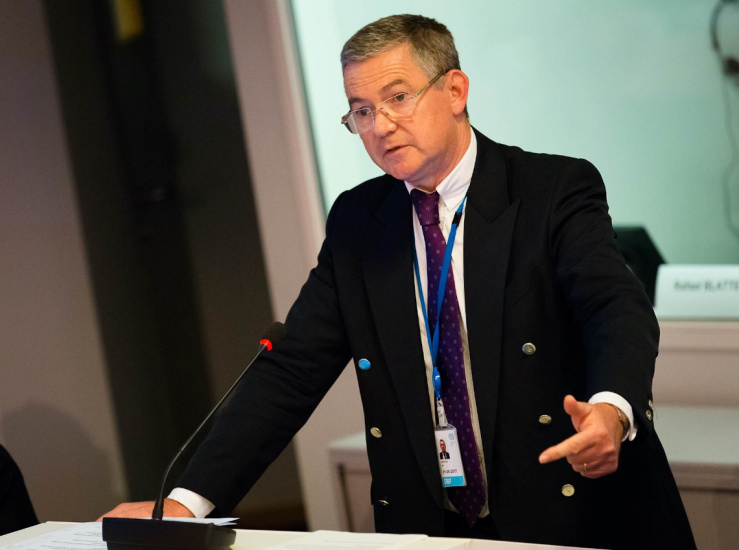Juin 2020
Entretien
Spotlight on... Ian Newton

Lisez cet entretien en français
Ian Newton is British and speaks English, German, French and Russian. In 1977, he obtained a Master of Arts in Modern and Medieval Languages from the University of Cambridge. The year after, he took a conference interpreting course at the European Commission. From 1980 to 1989, he was a freelance interpreter, first in Brussels then in Geneva, working for a number of international organizations including the United Nations, International Labor Organization (ILO), World Health Organization, World Intellectual Property Organization and Commission on Security and Cooperation in Europe. Since 1990, he has been working at the ILO as an interpreter and civil servant, and has been involved in conference management. In 2010, he became chief interpreter of the ILO. He taught the general consecutive interpreting course, which brings together all the interpreting students of the Faculty of Translation and Interpreting (FTI), regardless of their language combination. He participated in establishing the 2017 Memorandum of Understanding between UNIGE and the ILO to collaborate in the training of conference interpreters.
What does teaching interpreting mean to you?
Teaching conference interpretation is a huge privilege and responsibility. As Chief Interpreter of a major UN agency, I have always believed that, for interpreting to project the image of a sustainable profession with a vibrant future, it requires top quality representatives from all generations – young graduates, straight out of university, together with highly seasoned colleagues equipped with long years of experience. Once in the interpretation booth, everyone has something to give to and learn from others. Preparing students for this life-long learning process is, therefore, a perpetually stimulating exercise and it is highly rewarding to see students whom we have nurtured working in the “dream teams” servicing international conferences.
How were the last few months for you in terms of the quarantine and online teaching?
During this last semester at FTI and just before the lock-down, I was lucky enough to spend a week at Herzen University in St. Petersburg, where I delivered a training of trainers seminar to the teaching staff of the interpreting school, which has a long-standing partnership with the Interpreting Department. Upon my return to Geneva, I discovered that we were all moving into a very different mode, which required considerable adaptation. There was excellent leadership from the departmental management, in particular in tackling the technological challenges. Students in interpretation also displayed their huge capacity of adaptation, although most were fully cognizant that they were being prepared for a profession of communication and human contact and that, even if a share of remote work will undoubtedly be a part of the future landscape, the face-to-face environment is an essential ingredient of our activity.
To conclude, tell us a bit more about your experience teaching at the FTI and your plans after retirement.
It is a source of immense pride for me to have seen so many former students grow to become fine representatives of the interpreting profession, and to have been able to help foster them. Interpreters, with their ability to listen, to comprehend and communicate with neutrality and impartiality, help to keep the world talking, even in the most complicated of international circumstances. Surely, that is a measure of the noble vocation that we, at FTI, are fortunate enough to share! As for me, I shall be moving on to new horizons: I have always had the ambition of taking up the study of Chinese…!
